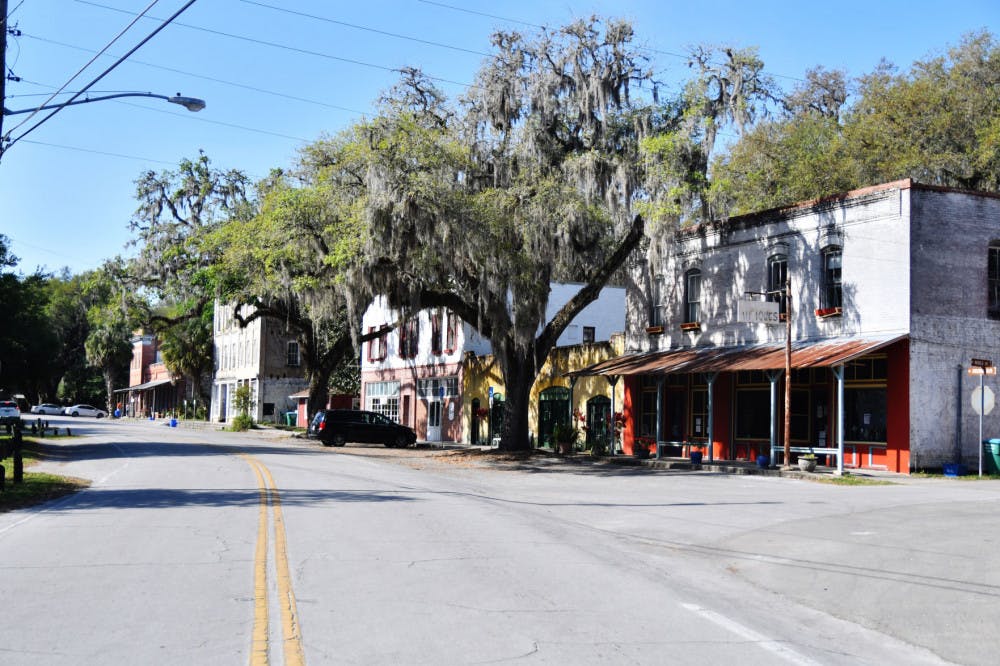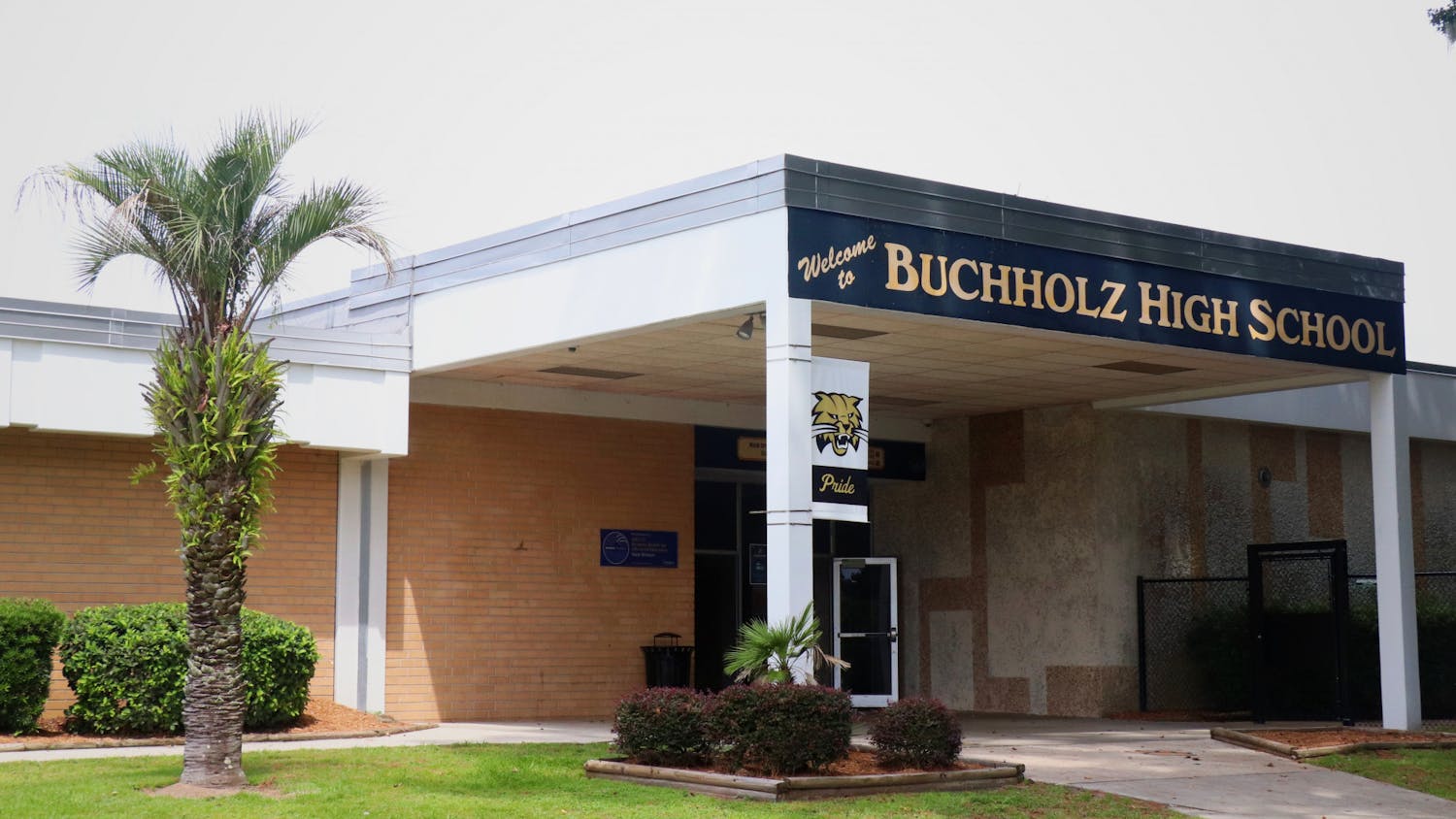A multi-million dollar high-speed internet project will be implemented in 10 Florida cities; one of them is a small Alachua County town of less than 1,000 people.
The town of Micanopy received nearly $3 million to bolster broadband internet access, which is affordable high-speed internet options Aug. 22. The funding is part of the Community Development Block Grant coronavirus program, which is overseen by the Florida Department of Economic Opportunity.
The program is funded by the U.S. Department of Housing and Urban Development, which distributed $5 billion nationwide for the Coronavirus Aid, Relief and Economic Security Act. It’s designed to help local governments fix the negative economic impacts caused by the pandemic, including the need to improve broadband infrastructure in affected communities.
Megan Beckham, a 32-year-old Gainesville resident, used to live in Micanopy and said everyone she knew had internet problems.
“If you work from home and your job relies on you having internet access, it can be kind of a sketchy area for that,” she said.
The internet problems also affected businesses because many take credit cards as a form of payment, she said. If they lost connection with their systems, Beckham said they would have to take cash only.
Sara Owen, Micanopy town administrator and clerk, said the pandemic made internet problems more apparent. Working from home became a challenge because of the connectivity issues, she said.
The town applied for the grant, Owen said, to specifically address high-speed internet issues, and the money will be “incredibly helpful.”
There are several options for high-speed internet, but Owen said there’s a “good chance” they will receive aid for fiber-optic internet. Fiber internet sends data through a fiber-optic cable.
This method transmits data faster than traditional copper cables, and fiber is more resistant to damage from the environment.
To receive the grant, communities eligible submitted an application by Nov. 1, 2021. They could request a minimum of $200,000 and a maximum of $3 million.
After communities receive the money, its spending must meet one of three objectives. The town or county’s program must be beneficial to low or moderate income residents, prevent or eliminate unhealthy or unsafe conditions or address urgent community needs that pose a threat to people’s welfare.
Ginny Mance, Micanopy mayor, said low- to moderate-income residents will receive hookups, which will connect the fiber-optic cables that either are underground or from a pole to a router inside a house.
Gov. Ron DeSantis has long been a supporter of broadband expansion. He signed House Bill 1239 into law to expand broadband to underserved communities in 2021. In addition, DeSantis awarded $22 million to 15 Florida communities in April —Otter Creek, Astatula and Fellsmere received the money to create high speed internet options.
“This $22 million in awards will help 10 communities meet their infrastructure needs and provide long-term services for their residents for years to come,” DeSantis said in a press release.
Other Florida communities slated to receive money are Glen St. Mary, Springfield, Collier County, Fort White, Hillsborough County, Groveland, Lee County, Broward County and Miami-Dade County.
Broadband issues are not only focused in Micanopy. In Gainesville, City Commissioners Adrian Hayes-Santos and David Arreola have advocated for increased internet access.
In June, the City Commission voted 2-5 to dismiss a proposal to use almost $10 million from the American Rescue Plan Act with Hayes-Santos and Arreola dissenting.
When Hayes-Santos first ran for City Commission, one of his top priorities was expanding internet accessibility. Bryan Eastman, District 4 city commissioner-elect, advocated for affordable internet for everyone. Eastman started Connected Gainesville, which is an organization advocating for affordable internet in the city.
Activities the communities can spend the money on include public facilities, workforce housing, public improvements and public services including broadband planning that creates high-speed internet options.
Many of the towns and counties are using the money to improve sidewalks and roads, according to DeSantis’ press release, including Glen St. Mary, Groveland and Fort White. Springfield is using the money to rebuild a community center and Collier County will build a new senior center and library.
Broward County will use the money to provide rental-assistance, while Hillsborough County will expand multi-family workforce housing. Lee County will increase the bed capacity at a rehabilitation facility to support individuals struggling with mental health and substance abuse.
Lastly, Miami-Dade County will offer job training to manage affordable housing properties.
“We are so excited to be one of the 10 communities in Florida to receive this funding,” Mance said. “Many thanks goes out to Gov. DeSantis for this community development award.”
In addition to the grant, Owen said the Micanopy local government has been looking into other resources to improve internet access. She has been working with Alachua County for state funding that assists rural areas looking to better internet infrastructure, she said.
The county allocated $15 million out of the $52.25 million it received from the American Rescue Plan Act to address internet problems. The money will be used to create equity in internet access and affordability to underserved communities. To achieve this, the county created a regional technology planning team to develop a plan with the Florida Department of Economic Opportunity and the Office of Broadband.
The state Department of Economic Opportunity also created an internet speed test to help users find out their internet speeds. Each time a person takes the test, the software detects the locations of slow internet speeds, which helps internet providers identify and help underserved communities.
The final plan will have the number of houses and businesses that’ll have better internet access because of this project. It will also have a list of prices and internet speeds that will be offered, how many miles of fiber are needed and the technology needed.
Contact Alexa Herrera at aherrera@alligator.org. Follow her on Twitter @alexakherrera

Alexa Herrera is a junior journalism major who is the metro general assignment reporter for The Alligator. She is also a copy editor for The Florida Political Review and a member of Kappa Kappa Gamma. In her free time she enjoys cheering on the New York Rangers during hockey season, listening to Harry Styles and spending time with her friends.






